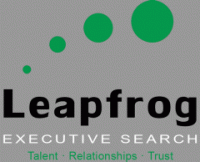Executive Assessments: Art or Science?
Category : 2016
From time to time we like to feature insights from a trusted organization in the Marketplace. Take a few minutes to learn about both the art and science of executive assessments from…
Once upon a time, there was a capable but humble 30-something young executive (we’ll call him Cole) who was in sales. He had worked for reputable companies and developed good skills in the latest technologies. Eventually he married, moved back to his hometown, and applied for a new job. The leader of the organization was someone he had worked for before. She knew Cole’s work ethic and that he would be a good cultural fit. Further, he had the skill set they needed, and she had been looking for many months for the right candidate. Naturally, she was thrilled to hire someone she knew and trusted. There was one problem – based on the results of an on-line, pre-employment survey, the results did not support hiring Cole. Fortunately, this story has a happy ending. They sent Cole for a full executive assessment; he was hired and is doing an excellent job.
The on-line, pre-employment survey is a ubiquitous part of many, if not most, job searches today. From mom-and-pop businesses to the Fortune 100, companies are implementing a variety of data-driven testing and assessment practices. Using data-analytics, behavioral scientists have been able to quantify what makes someone successful in a particular role. This is the science of assessment. Administered properly, pre-employment testing can help companies save time, decrease turn-over, and increase productivity and morale, as well as improve the odds of hiring high-quality candidates. As if that were not enough, on-line, pre-employment tests are relatively inexpensive.
With all the buzz about on-line testing, it might be easy to assume that traditional executive assessment is going the way of the home land-line telephone. Not so! There is great value in high-touch, multi-faceted assessment. Why? Because this type of assessment combines art and science. Executive assessment harnesses the power of data analytics and takes it a step further by synthesizing many data points of information with skill and insight no computer could ever replicate. A common frustration expressed by candidates is that they do not feel they are able to adequately express or portray themselves with yes-no or multiple choice answers. In executive assessments, psychometric testing is supplemented with structured behavioral and open-ended interview questions to present a far more complete picture of candidates – their strengths, developmental opportunities, preferred work environment, career goals, and specific things their boss can do to maximize their effectiveness and keep them motivated.
Let’s go back to Cole. While the executive assessor’s psychometric testing flagged the same potential liabilities that the original on-line, pre-employment survey did, they gave him multiple surveys that measured different aspects of work effectiveness. They asked questions, listened carefully, and ultimately drew the conclusion that his strengths would more than compensate. In addition to a custom report, they had a conversation with the hiring manager about how their company could maximize Cole’s skills, mitigate his weaker points, and get him off to a strong start. By the time they finished talking, the company had a clear on-boarding and development plan for Cole.
In addition to avoiding a bad hire, there is significant lost opportunity cost by passing on a strong hire. The moral of this story is – capitalize on the science, but never lose sight of the art, especially when it comes to something as important as your hiring decisions!
